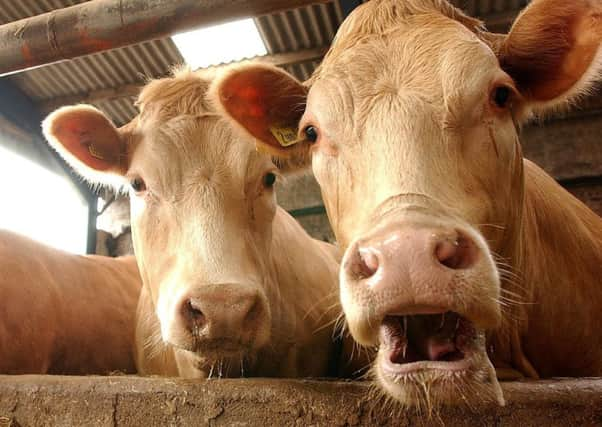Low-risk BSE status will drive Scottish red meat exports
This article contains affiliate links. We may earn a small commission on items purchased through this article, but that does not affect our editorial judgement.


Negligible risk status – a classification long sought by the country’s beef and sheep industries – was confirmed by the World Organisation for Animal Health (OIE) in Paris yesterday, giving official recognition that the BSE risk status of both Scotland and Northern Ireland is at the safest level.
England and Wales continue to be recognised as having “controlled risk” BSE status.
• READ MORE: Farming news
Advertisement
Hide AdAdvertisement
Hide AdWhile BSE first hit the headlines in the late 1980s and cases peaked in the early 1990s, it was when the European Commission banned all exports of UK beef in 1996 that the country’s cattle industry faced collapse, and the work to convince authorities of the safety of Scottish beef has been ongoing since then.
So it was no surprise that the new status was roundly welcomed by the industry, with rural secretary Fergus Ewing stating that this “significant achievement” had been many years in the making.
“Scotland has had no cases of BSE since 2009 and this announcement is testament to many people’s tireless efforts, including the The Scottish Association of Meat Wholesalers, our beef producers and finishers, our red meat businesses, vets, and this government. We have all worked together to maintain a system of interlocking safeguards against BSE that protects our public and animal health.”
• READ MORE: BSE regulations ‘might be lifted in coming months’
He added: “With Scotland already being recognised as officially TB-free, this decision further vindicates our reputation for supplying beef products of the highest quality, produced to the highest standards in the world, and demonstrates the OIE’s acceptance that both our surveillance for, and measures against BSE are stringent.”
Ewing said that gaining this ticket gave Scotland an even stronger foundation to continue to increase Scottish beef exports across the world.
Advertisement
Hide AdAdvertisement
Hide AdThe move is also likely to free up some of the stringent restrictions which had massively devalued the “fifth quarter” – hides, offal and other by-products – and had seen considerable additional costs incurred in disposing of so-called controlled waste.
NFU Scotland’s livestock committee chairman, Charlie Adam, said: “Achieving this status prior to Brexit secures the high-quality reputation of Scottish beef that is produced under the highest health standards.
“This reputation will be key to securing access to new and key markets, as we look to find new customers for Scottish produce going forward.”